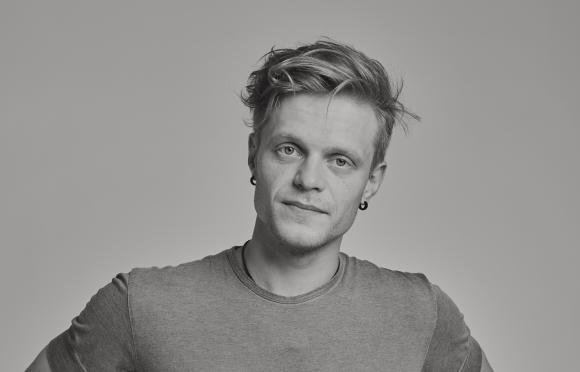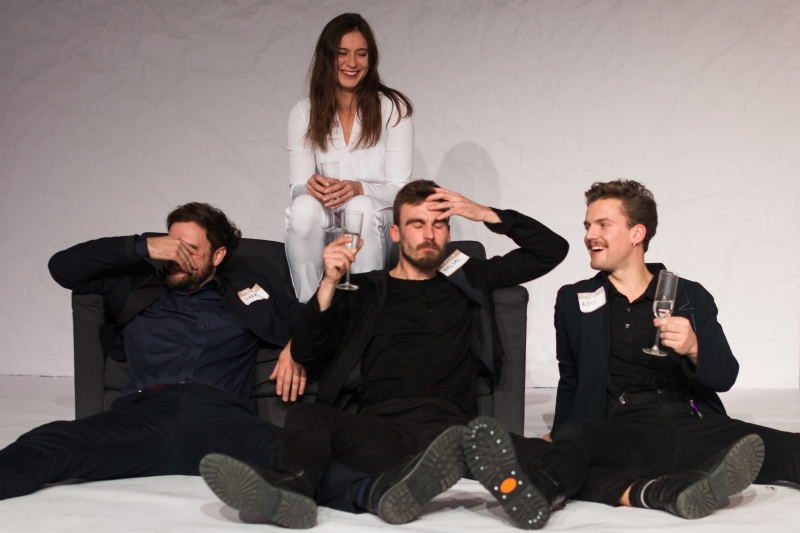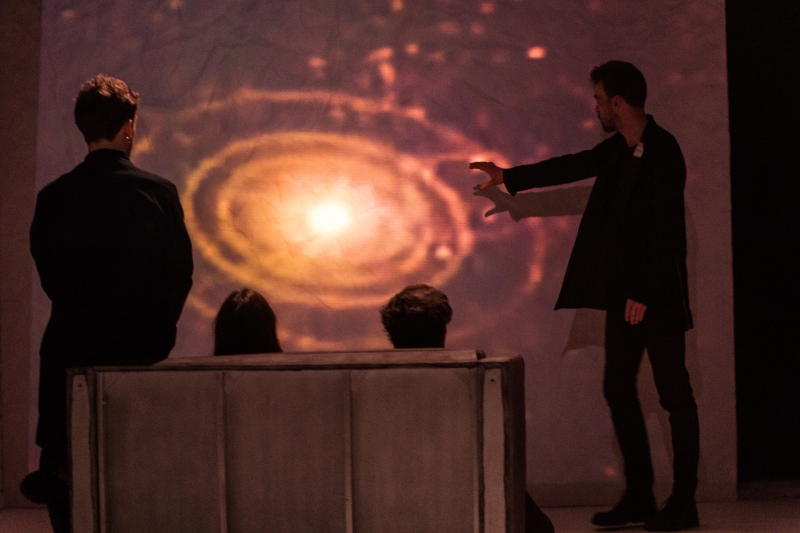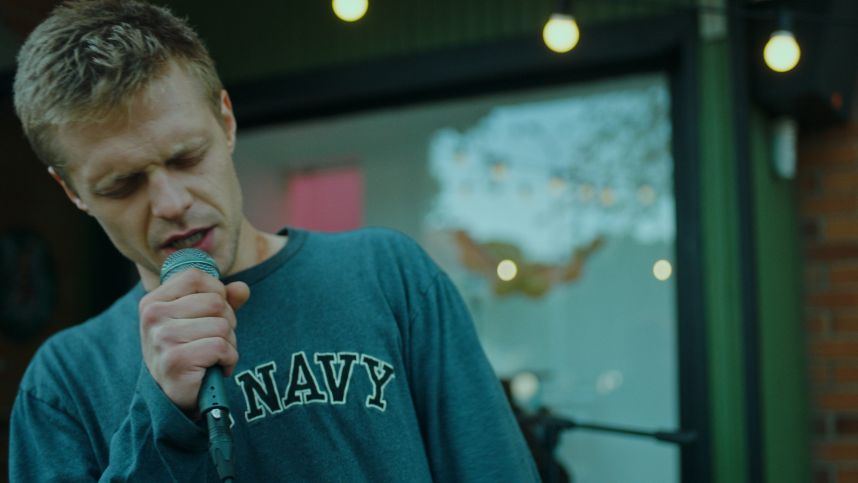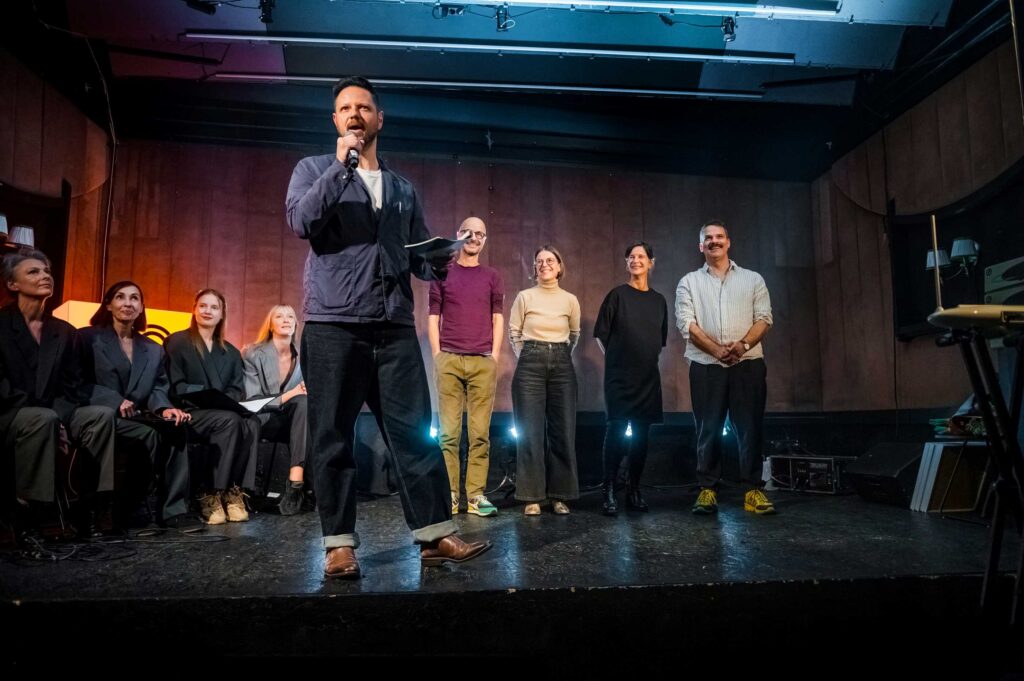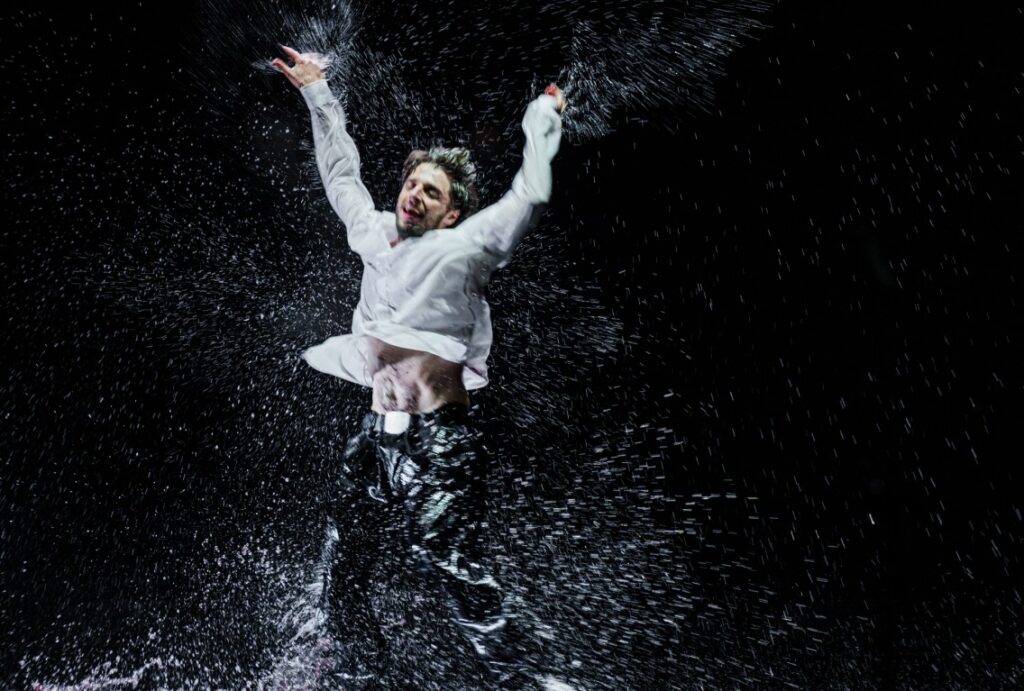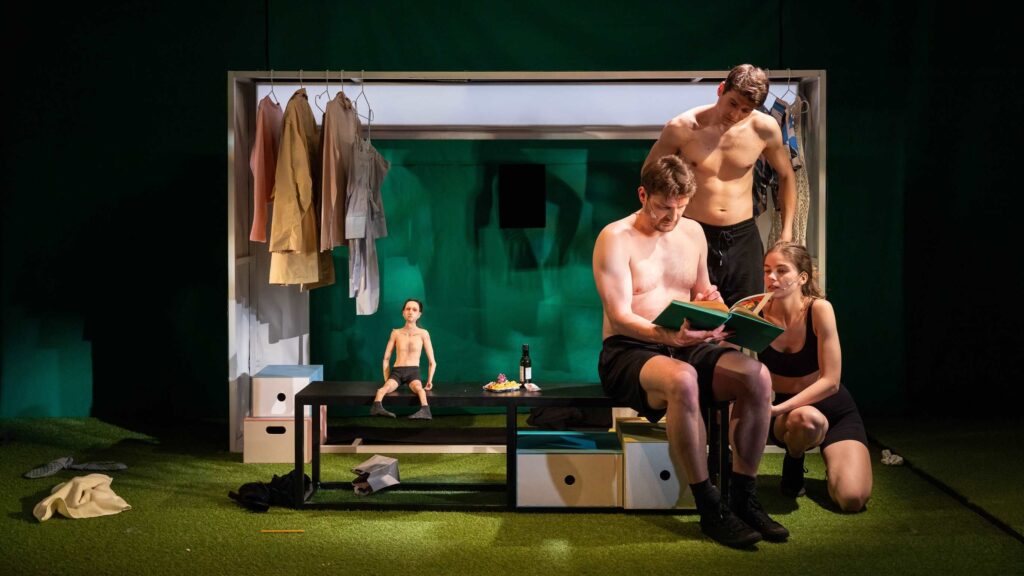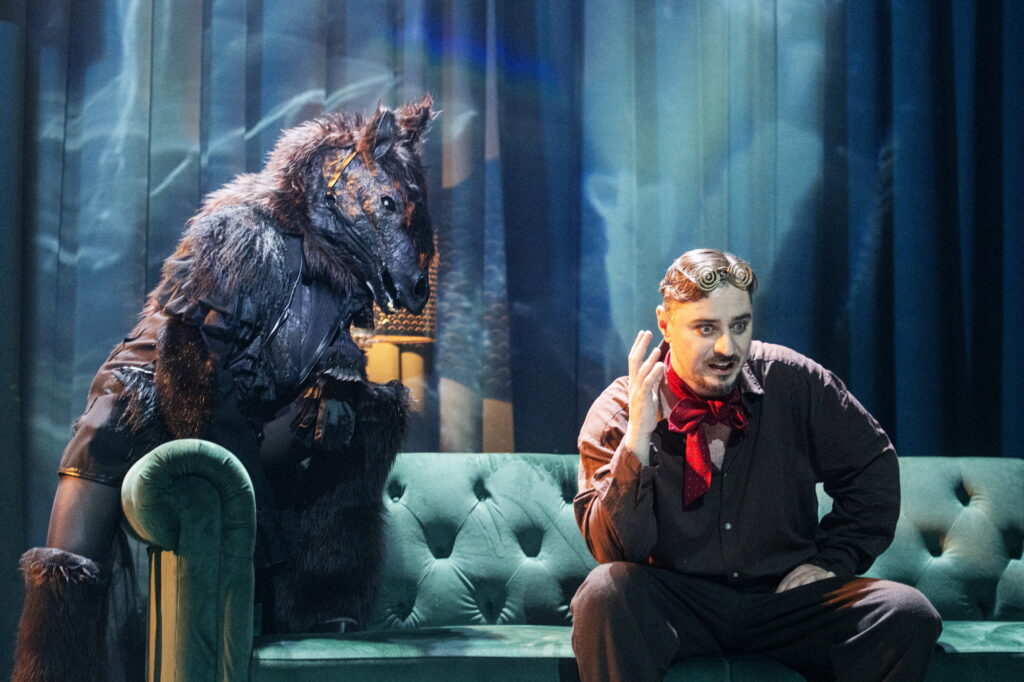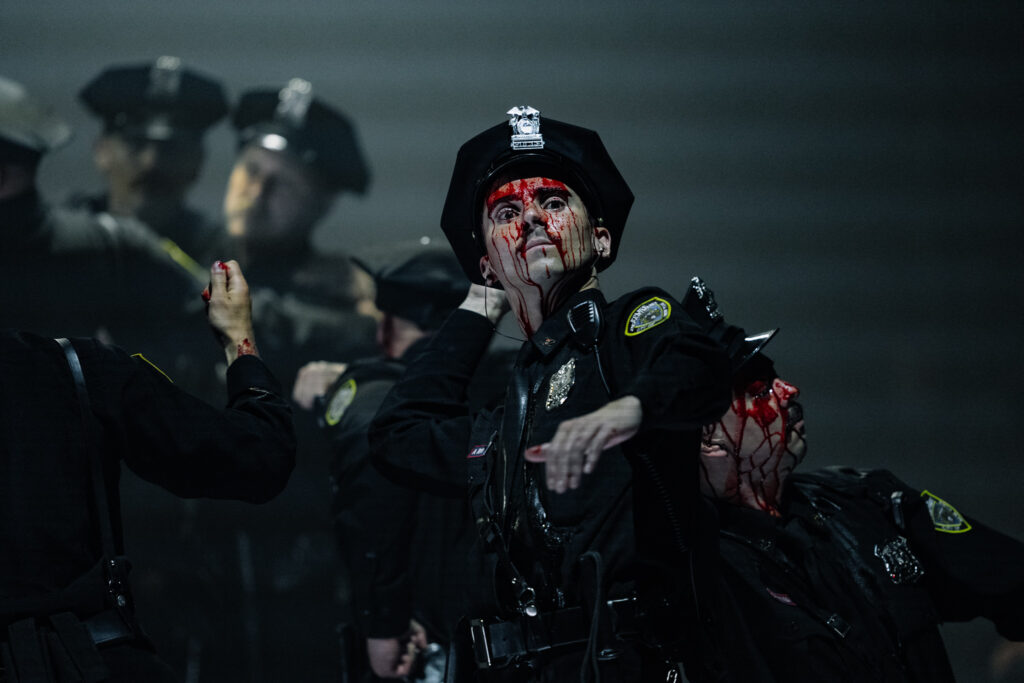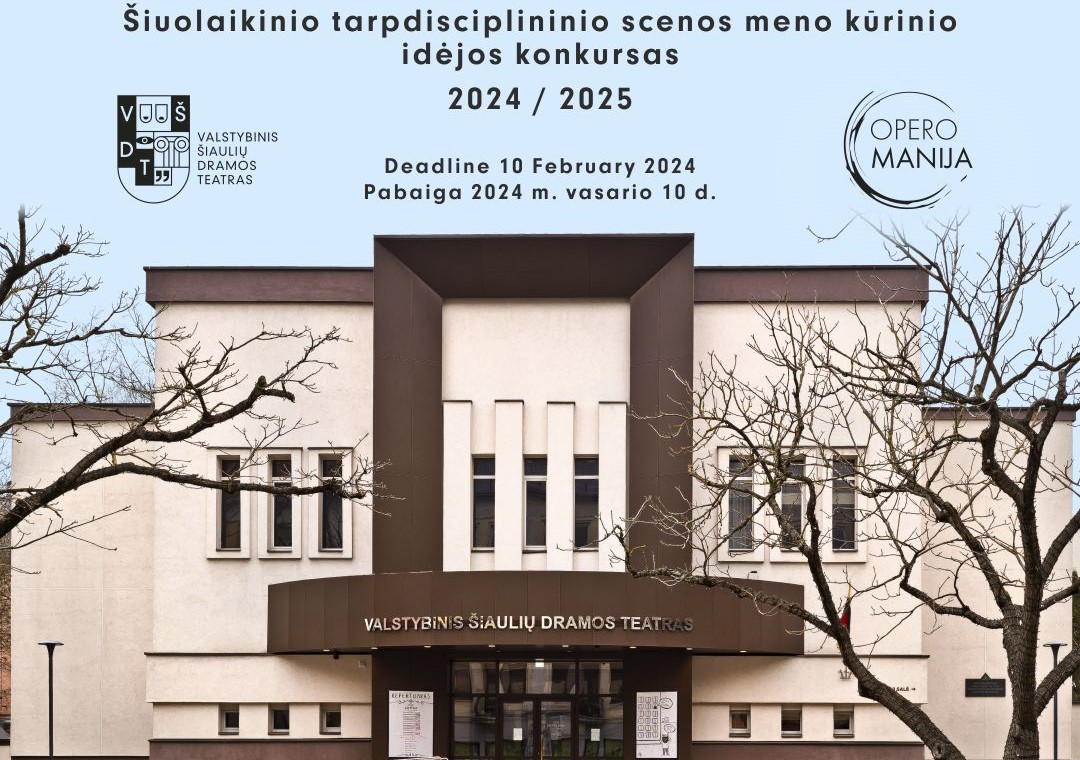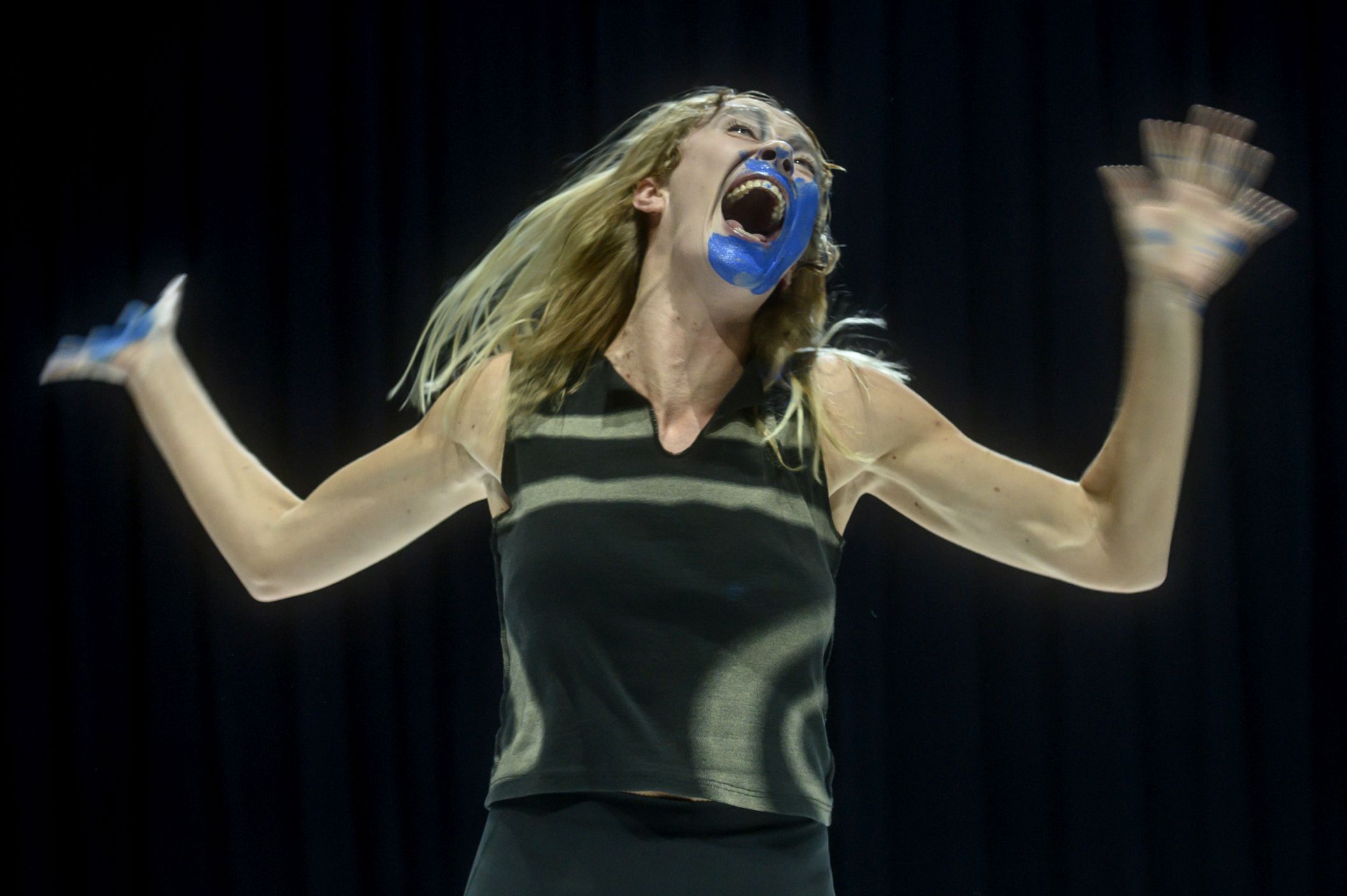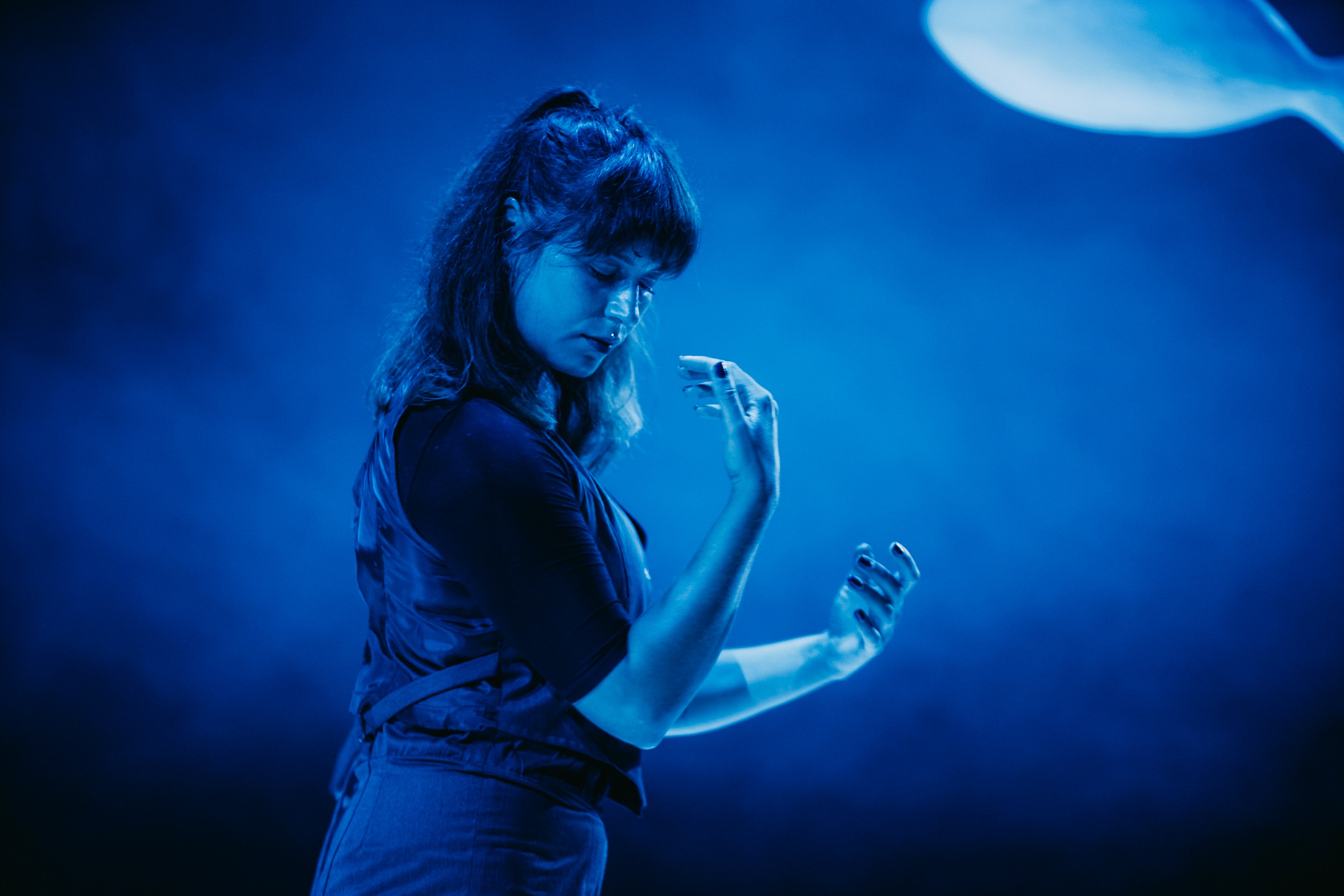Thirty-year old Paulius Markevičius performs in theatrical productions and films by various directors, directs performances in theatre, radio and unusual spaces, plays in an ensemble and brings together his peers to create (the project Collaborations). The works that he directs often break the usual boundaries, seek for new theatrical territories and an immediate contact with the audience. His work The Things (Lith. Dalykai) shown at the festival Sirens is the first performance of the Art and Science Laboratory (ASLAB), a theatrical experiment based on quantum physics. As regards the big-screen, lately, the general public of cinema-goers have known Paulius Markevičius as a charismatic actor who played the main role in the debut film Summer Survivors (Lith. Išgyventi vasarą, 2018) by young director Marija Kavtaradzė presented successfully in various international festivals. When the film was shown in the festival Kino Pavasaris (Lithuania), the international jury selected Paulius Markevičius as the best actor.
Markevičius studied acting in the course led by Eimuntas Nekrošius; therefore, the first roles of the entire course occurred on the professional stage, i.e. in The Divine Comedy (Italian: Divina Commedia) directed by Nekrošius based on the work by Dante Alighieri. Speaking about cinema, Paulius Markevičius made his debut in short films by his peer Marija Kavtaradzė during their study years. And so the creative path of this young artist has been unfolding between classics and modernity, between a canon and experiment. He has also directed a traditional performance at the Lithuanian National Drama Theatre, and has played a part in the performance The Oedypus Myth (Lith. Oidipo mitas) by Gintaras Varnas staged in the same theatre. Also, the artist has directed various experiential spectacles and has been acting in performances by young directors. He seems to be more attracted to searching and exploring, whereas the link is stronger with the present day and the creators of his own generation.
“I've always been interested in inventing things perhaps even more than in doing them,” Paulius Markevičius has once said. While studying acting, he also felt a strong pull towards directing. Perhaps the work with Nekrošius and a caring attitude and interest of this master of directing towards young artists enabled Markevičius to make his debut precisely in Meno fortas, i.e. in the studio of the theatre established by Eimuntas Nekrošius, in his rehearsal space. It is here that Markevičius staged his first performance The Sacrifice of a Bull (Lith. Jaučio aukojimas) based on the novella by Lithuanian master of literature Romualdas Granauskas.
Soon Markevičius started encouraging his peer artists to organise groups, create and present a series of premieres. “Communication through creation is one of the goals that I've been posing to myself. Theatre unites a lot of different disciplines, so I'd like to maintain that unity among them and to implement ideas with various other creators.” The project Collaborations initiated by Markevičius has attracted a large number of artists, whereas the young director himself together with dramatist Birutė Kapustinskaitė have created a completely unexpected spectacle called Two and a Half Minutes (Lith. Dvi su puse minutės). This is both an ordinary and a site-specific performance; it's the installation of darkness with music and monologues of the actors; silent looking into each other's eyes. Communication and unity occurs when spectators listen to the stories about anxiety and its causes sitting with the creators of the performance, actors and musicians in the common space, having wandered through their created maze. Theatre critic Rūta Oginskaitė wrote, “With their work they speak about themselves, which is neither easy nor comfortable or distinct. I like that they don't declare their exceptionality, although they're absolutely different from anything else in Lithuanian theatre and they build the uniqueness of their expression carefully, without any noise, fully concentrated on what they're interested to say. They explore how their unusual common idea becomes reality; how it reacts in contact with other people who've agreed to be their audience.”
Paulius Markevičius continued the experience of close contact by creating the mono-performance Alberai, WRU?, where he himself acts for just one spectator. Albert Camus and Michel Gallimard are listed here as co-authors. Markevičius plays the role of Gallimard - to his only spectator he tells about his friend writer who died as a passenger in the car driven by him. Not only tells but also enables the spectator to feel and experience this through theatrical means. While rehearsing this performance, Markevičius was wondering that, “Theatre can become a good tool to speak the topic you're concerned with. In the topic of loneliness, there are very many sub-topics that I've been analysing recently. The autobiographical mono-performance based on the life story of Albert Camus also speaks about this. I want to talk about those human moments of weakness, losses and the relationship with the other person. What problems one faces, what mistakes one makes along the path of one's life.”
Markevičius' activities in the Art and Science Laboratory (ASLAB) - the existence of which started with the performance The Things - also stand out for his search for new ways and paths. The artist liked the idea that scientists and founders of ASLAB Rusnė Kregždaitė and Loriana Kilaitė invited him to contribute to. “First of all, when they invited me to create the first performance, I was most attracted by the unknown, risks and experimenting. This project offered a lot of space to leave the standard. Then we started analysing what science is, what art is; and we started looking for starting points,” Markevičius recalls the beginning of their joint work. Now, ASLAB has already been recognised as a theatre of Vilnius and its performances are shown at the Meno Fortas.
Having attended the lectures on quantum physics, together with the creative group the director started rehearsing The Things. They began from simple etudes on scientific topics, without a play or plot. Together with his actors Markevičius played both physicists and subatomic particles, tried to link hardly related spheres, included a lot of movements and employed audio and visual elements as an equivalent partner of an actor. According to Markevičius, “Physics is the science about things, how they interact, how and why they exist, what impact they have on the environment or the environment - on them. Theatre is absolutely the same science about things. Having discovered quantum physics, the eternal question has once again been confirmed - we are all interested in the same, discovering new aspects of attitude or research.” In the opinion of critics, the performance has become one of the most interesting theatrical alternatives in Lithuania. As theatre critic Rimgailė Renevytė puts it, “In this performance, Hamlet's question 'to be or not to be (in theatre)?' turns into the answer, 'to be and not to be (in theatre)!'.“ Whereas reviewer Julija Šatkauskaitė observes that, “if, having returned home, you catch yourself imperceptibly repeating the strange movements of the actors, it can be said that the process has not only occurred but has also left a mysterious imprint, has set a riddle or offered a hint for further insights of a reasoning body and consciousness.”
Within three years, Paulius Markevičius has created three more performances linking art and science for the repertoire of ASLAB, i.e. interpreted the play The Physicists by Friedrich Dürrenmatt, where he destroyed the barrier between the audience and the characters placed in a mental hospital - the performance is called The Things; staged the play Errorai (dramatist Justas Tertelis) written specifically for the Art and Science Laboratory and telling about the mistakes of scientists that have become discoveries; and invited spectators into the nature at night, asked them to lie down on blankets to see the starry sky and listen to the stories about stars, galaxies and human relationships - that's how the performance Signals (Lith. Signalai) based on the play by Birutė Kapustinskaitė looks like.
And yet The Things has remained the most attractive and boldest work of ASLAB and Paulius Markevičius, preserving everything that characterises this young director avoiding standards: he continues working without noise, focused, not being afraid of mistakes and discovering more and more untested things, matters and signals in theatre. That's also how he defines himself, “I think that first of all I'm a seeker travelling through experiences in theatre.”

